PHP is still among the TOP 5 backend programming languages globally. It was used to build Wikipedia, Facebook, Yahoo!, Slack, Tumblr, and many other famous websites. PHP offers many frameworks to construct complex web applications and speed up the development process. Today's most popular ones are Laravel and Yii. There are many reasons why they have gained popularity in many industries. Find out why they have become the number one choice of developers and the main differences between them.
Yii and Laravel: Popularity Among Industries
These two PHP frameworks are famously known for their developer friendliness. They both are open source and follow the model-view-controller (MVC) architecture. Laravel offers less coding, expressive and clear syntax, general ease-of-use compared to other frameworks. Yii is most known for its widgets and localization capabilities. According to Google Trends, the global interest curve for Yii and Laravel from February 2020 to February 2021 is the following:
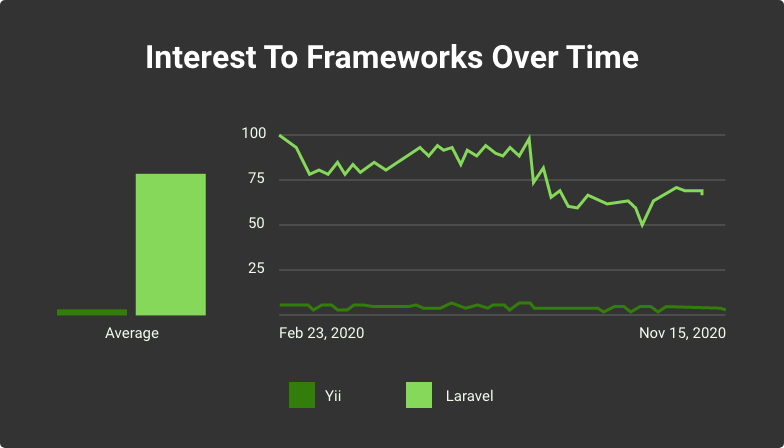
Interest for Yii and Laravel on the web search for February 2020 - February 2021
Despite the higher popularity of Laravel, there are still industries where Yii is more widely used. As SimilarTech reports, Yii has higher coverage in Science & Education, Health, Finance, Law & Government:
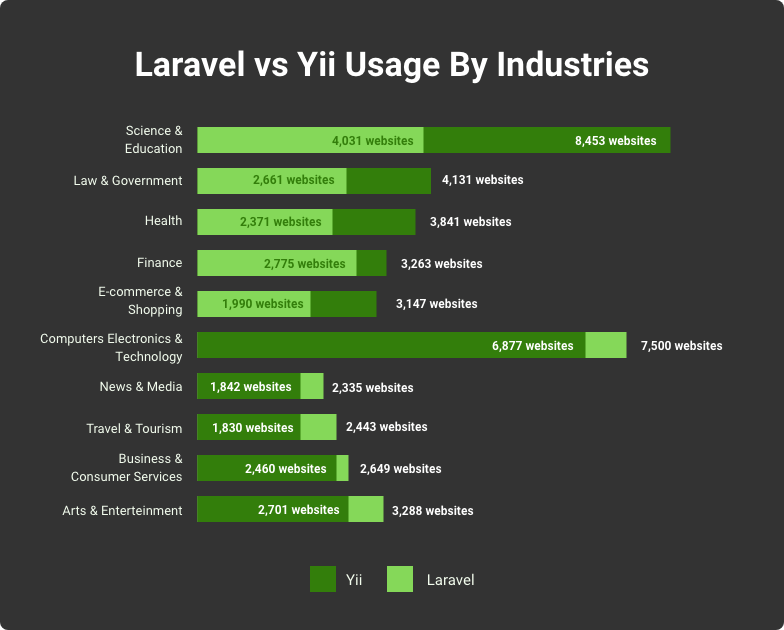
The usage coverage of Yii and Laravel by website categories
While Laravel is a leading PHP framework, there are industries where developers prefer using Yii. It depends on the project scale, data processing specifics, requirements to structure, security, storage, etc. Let’s find out what makes engineers choose these frameworks among the rest and who wins the Yii vs Laravel war.
Wondering which PHP framework is the best for your future application? Get expert advice from KeyUA.
Get In TouchLaravel Overview
Laravel was initially created as a better alternative to Codeigniter. It was geared towards enterprise software app development based on MVC patterns. The secret of its popularity mainly lies in accessibility & power combo, as Laravel features an extremely powerful toolset and capabilities within a comparatively short learning curve. Laravel is currently available in its 6th version. However, there are still a lot of websites in Laravel 4. To upgrade to later versions, developers must port the code manually, which is a relatively steep process.
Laravel is a top-ranked PHP framework with the most prominent community worldwide, except Western Europe and Russia. Here are the key features that keep Laravel among the leaders:
Artisan: it is a command-line tool that allows creating models, controls, configure scheduled tasks, and perform numerous custom commands with ease.
Eloquent: an Object-Relational Mapping (ORM) system, a friendly and transparent implementation of ActiveRecord template for interacting with databases.
Databases: Laravel has packages for every available database format. It goes with Redis key:value store, a Seeder tool for test data, and features migrations for easy porting of database changes and versioning.
Blade template engine: it allows using plain PHP code in views. The views are compiled and cached until modified, which causes zero overload to the application.
Libraries: there are 100s of standard Laravel libraries developers can safely use for their projects. The framework creators also offer highly detailed and helpful official documentation with timely updates.
Yii Overview
Yii is highly popular among Russian and Ukrainian developers, one of the leading countries for IT outsourcing worldwide. It was released in 2006 as a successor of the PRADO framework. For a long time, the framework stuck in 1.0 and 1.1 versions until Yii 2.0 was finally launched in 2014. Since that time, Yii has started to lose its popularity. However, there are still lots of developers actively using it for new development. The key Yii features include:
Support for PostgreSQL, MySQL, SQLite, Oracle, and other DBMS. Microsoft BI and MongoDB support are available via third-party packages.
Automatic code generation: using the Gii extension, developers can significantly speed up the coding. With its help, you can create anything from a model to a CRUD.
No templating engines support built-in. However, Twig, Smarty, and other third-party solutions can be used.
No frequent updates: there is no need to port the project code.
Great knowledge base: official documentation and many online tutorials help developers find most of the answers fast.
Both frameworks seem great, and they really are. For the sake of deeper comparison, Laravel and Yii must be considered in more technical aspects.
Yii vs Laravel for Web Development
They are powerful enough to become the right choice for various types of web platform development. They offer impressive debugging options, provide excellent security capabilities, and support multiple testing solutions. There are lots of extensions for both frameworks that help to implement any custom functionality.
However, practicing project building in both frameworks, our experts came across specific differences between Yii and Laravel. And here they are.
1. Development Cost
Using PHP frameworks makes development cheaper, as implementing the same functionality and layout takes less time than using pure PHP. However, the cost for development services varies depending on the chosen framework. To compare the total pricing, let's analyze the hourly rates for both frameworks.
Yii: According to ZipRecruiter, the median salary of a Yii developer in the USA is $106,924, which is $51/hour.
Laravel: The median salary of a Laravel developer is $92,285 or $44/hour (ZipRecruiter).
The total project cost highly depends on the qualification and size of the development team and project requirements. Also, offers from various IT development companies may vary. Due to comparatively high rates for PHP developers in the USA and Western Europe, many local businesses prefer outsourcing project development to remote specialists from other locations.
One of the regions with the most significant potential and fair cost/quality ratio is Eastern Europe. Here PHP development services are offered at $25-$40/h for Yii and $30-$45/h for Laravel developers, according to Upwork, one of the largest freelance portals worldwide. Laravel development in the freelance segment costs a bit more due to the higher demand for specialists in this framework. Yii is less popular among younger professionals. That is why fewer specialists master it.
2. Development Time
It is hard to compare Yii and Laravel in terms of the time required for the development. They are used for projects that vary in functionality and requirements in security, performance, extendability, etc. The correct choice of a specific framework can be a big time-saver by itself. However, there are general recommendations that may help to figure out the right choice.
Yii: Among the two, Yii is a better solution for content websites with more or less typical admin panels, minimum business logic, and standard data manipulations. The monolithic code won’t cause any problems in this case, and it will take less time to develop such a project on Yii.
Laravel: It takes less time to develop additional, custom functionality using Laravel. It also offers much more packages for extending the framework functionality, making non-standard tasks easier to implement.
3. Performance
It makes sense to compare the performance only for developing real-time applications when the speed of processing critical data in real-time is essential. In other cases, both frameworks perform well and do not cause any problems to end-users.
Yii: It is the fastest PHP framework in terms of high-performance application development.
Laravel: It is comparatively slower than Yii. However, many approaches help speed up the performance (Classmap optimization, config and routes caching, plugins usage optimization, etc.).
There are not many types of projects where real-time performance is critical. For instance, a social network heavily relies on such capabilities, and here Yii is excellent. But for many other types of projects, Laravel will also be enough to provide stable, smooth operation.
4. Security
Any product should secure its users’ data and provide proper access level management for various user roles. Reliable data protection is one of the critical criteria for customer loyalty. That is why when choosing a specific framework for your web application development, always consider if its capabilities satisfy your security requirements. Both Yii and Laravel provide mechanisms for password protection, authentication, protection against SQL Injections, Cross-Site Scripting, and other security threats.
Yii: Additionally, Yii offers a feature-rich role-based access control system.
Laravel: There are no integrated access control tools by default. It doesn’t make Laravel ‘bad’ in terms of security, as there are a lot of third-party extensions to set up high-end access controls.
5. Installation and Project Setup
The installation process is pretty straightforward for both frameworks.
Yii: There are two main options available. You can install the framework from an archive file by downloading and unpacking it to a web-accessible folder. Another option is installing via Composer. In this case, you need to install Composer first, configure the access token, and install Yii by running a proper command under a web-accessible folder.
Laravel: You have a choice — you can install it by using a Laravel Installer or Composer, a PHP package manager. There is also a helper that speeds up the installation process.
6. Routing
Yii: Yii offers automatic default routing. There is no need to declare a route for each action in the controller.
Laravel: Typically, you need to declare a route to each action of the controller. Also, you can declare multiple routes in one using resource routing. It assigns typical routes to a controller within a single code line.
7. CRUD Generation
CRUD (Create, Read, Update, Delete) concept is a set of operations for processing data stored in a database. In web development, CRUD application is like an admin panel for managing various entities (data) inside the app. It allows using less code to implement proper data management, facilitating data security control, and avoiding messy code with lots of repeated fragments for the same-type operations.
CRUD also affects end-users of the application. Most web apps provide users with the ability to fill the forms by adding new information, search for existing data (like product description), edit some data, etc. All this activity is the use of CRUD on the UI side. That is why CRUD plays a crucial role in building web applications, proper functioning, and interaction with end-users.
Yii: It offers an easy-to-use Gii tool that allows prototyping by generating commonly used code fragments or complete CRUD controllers. A Gii is available through a web interface where developers can interactively generate the required snippets. There is also a command-line interface for those who prefer working through the console.
Laravel: It doesn’t provide CRUD GUI out-of-the-box. Usually, developers use third-party CRUD generators Laravel, such as CRUDBooster, Craftable, or Laravel CRUD Generator.
8. Migration
If you plan a long-term project development, it would be great to select a framework with handy database migration mechanisms on board. Migrations allow moving to a new database structure without losing data from the old structure. In terms of migrations, both frameworks offer handy tools that are pretty similar with slight differences.
Yii: Yii features a complete tool for effective and handy migrations. It also allows generating fixtures to seed the information.
Laravel: it offers a seeder for easy data transfer and smooth testing over modules. The data seeding option is also on board.
9. Testing
Both frameworks have good testing capabilities for detecting and debugging various types of malfunctions and system non-performance scenarios.
Yii: It offers PHPUnit and Codeception out of the box
Laravel: it features PHPUnit and various Symfony testing components like Httpkernel, DomCrawler, Browserkit, etc.
10. Debugging
Yii: It offers an integrated debugging console to process database requests, multi-level logging, and database request logging. There are also third-party extensions for other debugging needs.
Laravel: This framework offers a more comprehensive debugging toolset out of the box. A debugging console with a stack of callbacks, a logging tool, and Imho are available.
11. Extensions
Both frameworks are equipped with extensions for almost any need. They help to mediate various framework disadvantages by using proven add-ons.
Yii: More than 2,800 extensions are provided to add various functionalities to enhance the app.
Laravel: There are about 9,000 extensions available for customizing web application behavior according to the project needs.
An optimized budget & time for development, stable performance, and easy maintenance are what you get with KeyUA.
Contact UsTOP Laravel And Yii Based Projects
To appraise the capabilities of both frameworks, check the most popular projects developed with Yii and Laravel.
CoderMap – Developer Community
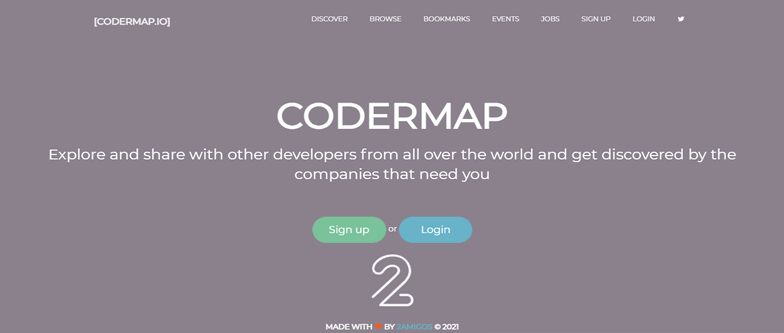
It is a Yii-based platform where developers can communicate with each other according to their interests and professional goals and find job opportunities in specific locations. Here people can share their bookmarks and collect feedback from other members.
LUYA – Content Management System
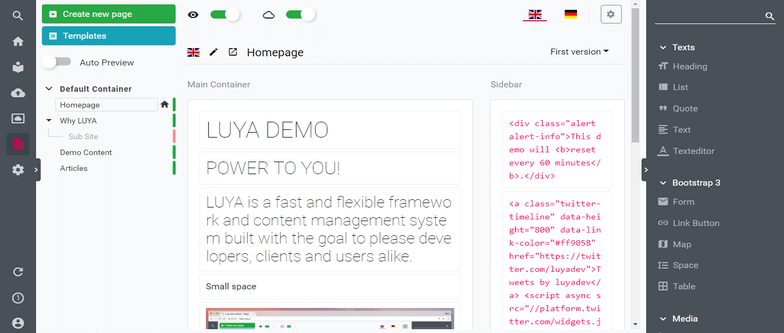
LUYA is an advanced Yii-based web framework that contains modules for content management, administration, authorization, testing, etc. You can use any combination of those modules to create your own web application.
HumHub – Social Network Software
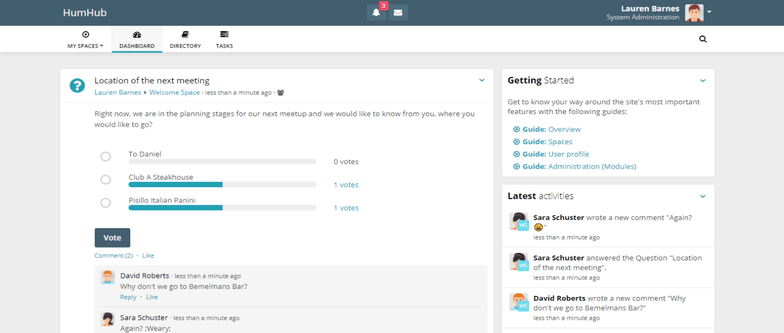
HumHub is a Yii-based open-source software and framework for creating social networks. Utilizing the best real-time performance capabilities of Yii, it offers powerful yet easy-to-use tools for communication and collaboration project development.
Koel – Personal Audio Streaming Application
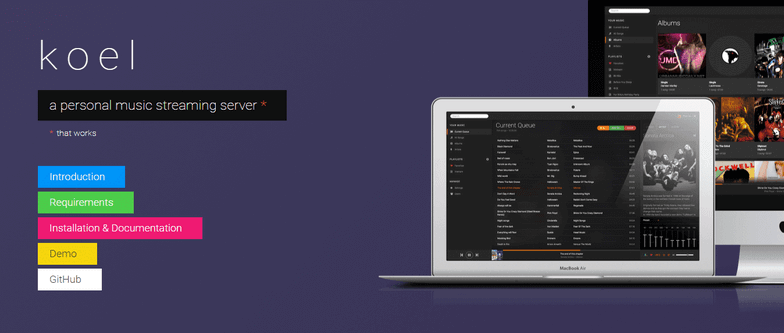
The backend of this personal streaming service is developed in Laravel, while the client-side is written in VueJS. It utilizes multiple cutting-edge technologies like Flexbox, drag-and-drop API, CSS grid, etc.
Cachet – Status Page System
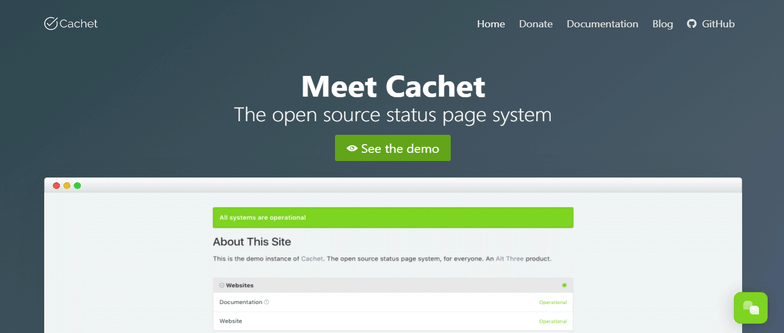
It is a Laravel-based open-source software that reduces downtime. It helps companies to track the downtime and various system outages and report to customers, shareholders, and teams about them.
Flarum – Forum Application
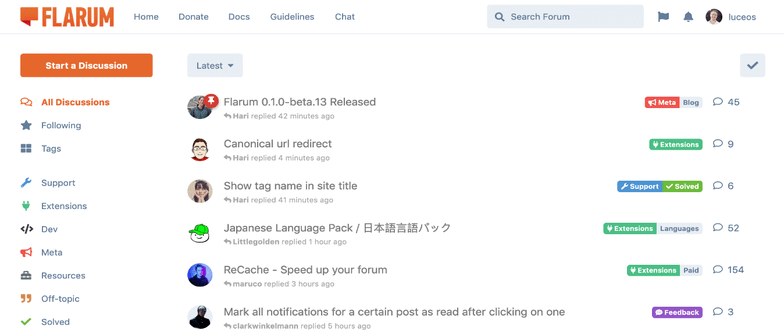
Flarum is a Laravel-based discussion platform that can be integrated into a website. If you need to develop a community and maintain open discussions among your customers and site visitors, this open-source platform is a great option.
Comparison Summary
Comparing Laravel and Yii is rather doubtful. Both frameworks provide broad possibilities that are implemented differently. There is no absolute winner in the Laravel vs Yii performance race.
However, drawing a side-by-side summary may help identify major differences and define a better fit for your project. It includes various metrics, a multi-language interface, two-factor authentication, powerful report generation, and many other functionalities.
Yii vs. Laravel Comparison Table
Criterion | Yii | Laravel |
Technical requirements | PHP 4.5+ | PHP 5.4+ PHP JSON extension MCrypt PHP extension |
ORM (Object-relational mapping) | DAO (Data Access Objects) ActiveRecord Doctrine 2 (via plugins) | DAO (Data Access Objects) ActiveRecord Doctrine 2 (via plugins) |
Project setup | Installation from an archive file Composer | Laravel installer Composer |
Routing | Automatic | Resource routing |
Validation | Scenario-based | Validation class, no scenario-based validation available |
CRUD Generation | Gii | Third-party CRUD generator GUI. Basic CRUD admin panel creation by default. |
Migrations | Migration class | Migration class Seeder class |
Testing | PHPUnit Codeception | PHPUnit Symfony testing components (DomCrawler, BrowserKit, and HTTPKernel) |
Debugging | Debugging Console Database requests logging Multi-level logging | Debugging console Logging Imho (limited) |
Security | ACF (Access Control Filter) RBAC (Role-Based Access Control) OpenID OAuth and OAuth2 Authorization extension | RBAC (Role-Based Access Control) ACL plugins (Access Control List) ACF (Access Control Filter) |
Extensions | 2,800+ extensions | 9,000+ extensions |
Whatever points you compare, it is hard to say whether Laravel or Yii is better. Each framework has its own pros and cons. Laravel is more prevalent among other PHP frameworks due to its active development, frequent improvements, and steep learning curve. Young developers would rather begin with Laravel. However, this doesn’t make Yii a ‘bad’ choice. Just fewer people in the industry use it nowadays.
Final Thoughts
The worldwide popularity of Laravel made it the winner among all PHP frameworks in 2021. Lots of companies use it as a No1 choice for all PHP-based projects. Other frameworks are often not even considered for web development. Being a bit underestimated, Yii has certain technical advantages compared to Laravel. Experienced engineers still choose it for deeper security configurations, handier routing, and CRUD generation.
KeyUA developers have vast experience in using all of today’s PHP frameworks. We always reason the choice of Laravel or Yii for web development based on the project specificity. If you doubt which framework would be the best for your web application, let’s discuss the requirements and find the right solution together. We are always happy to convert our technical expertise into our clients’ business success!
Lay the basis for your future project success in the long run by choosing the proper PHP framework.
Contact Us


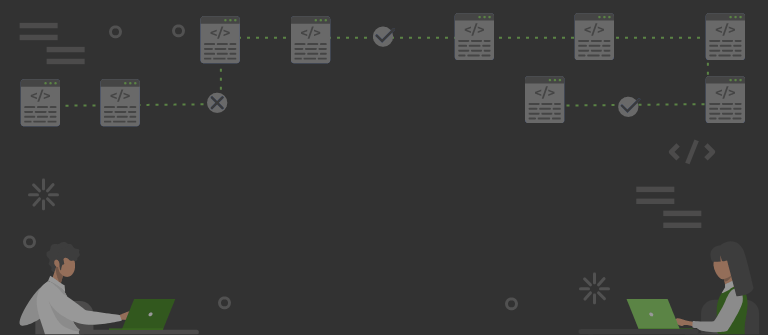
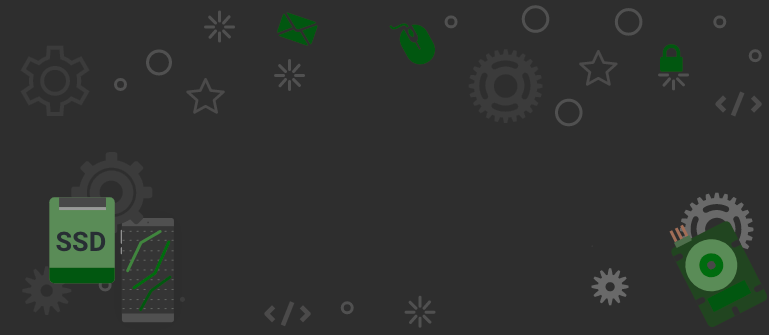
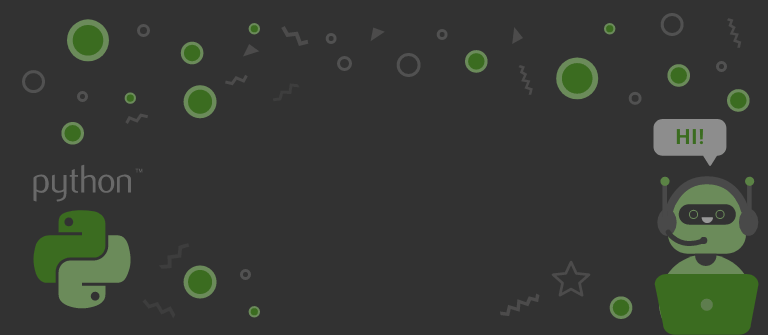


 Unit 1505 124 City Road, London, United Kingdom, EC1V 2NX
Unit 1505 124 City Road, London, United Kingdom, EC1V 2NX

Comments
Leave a comment